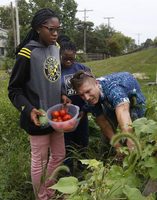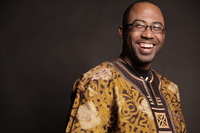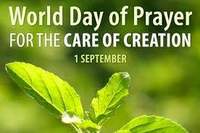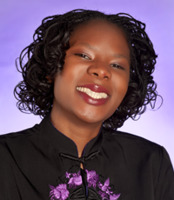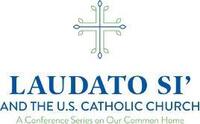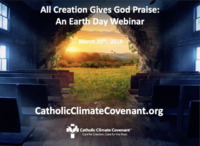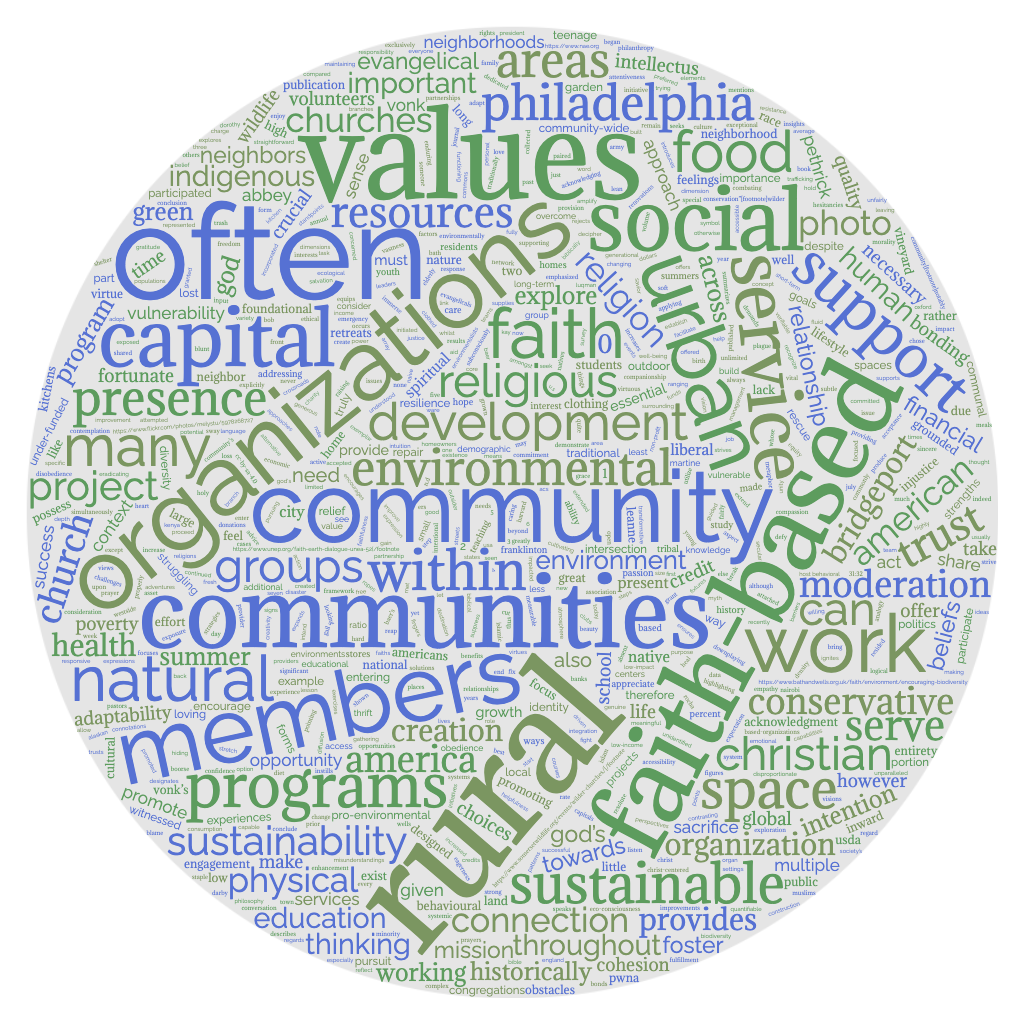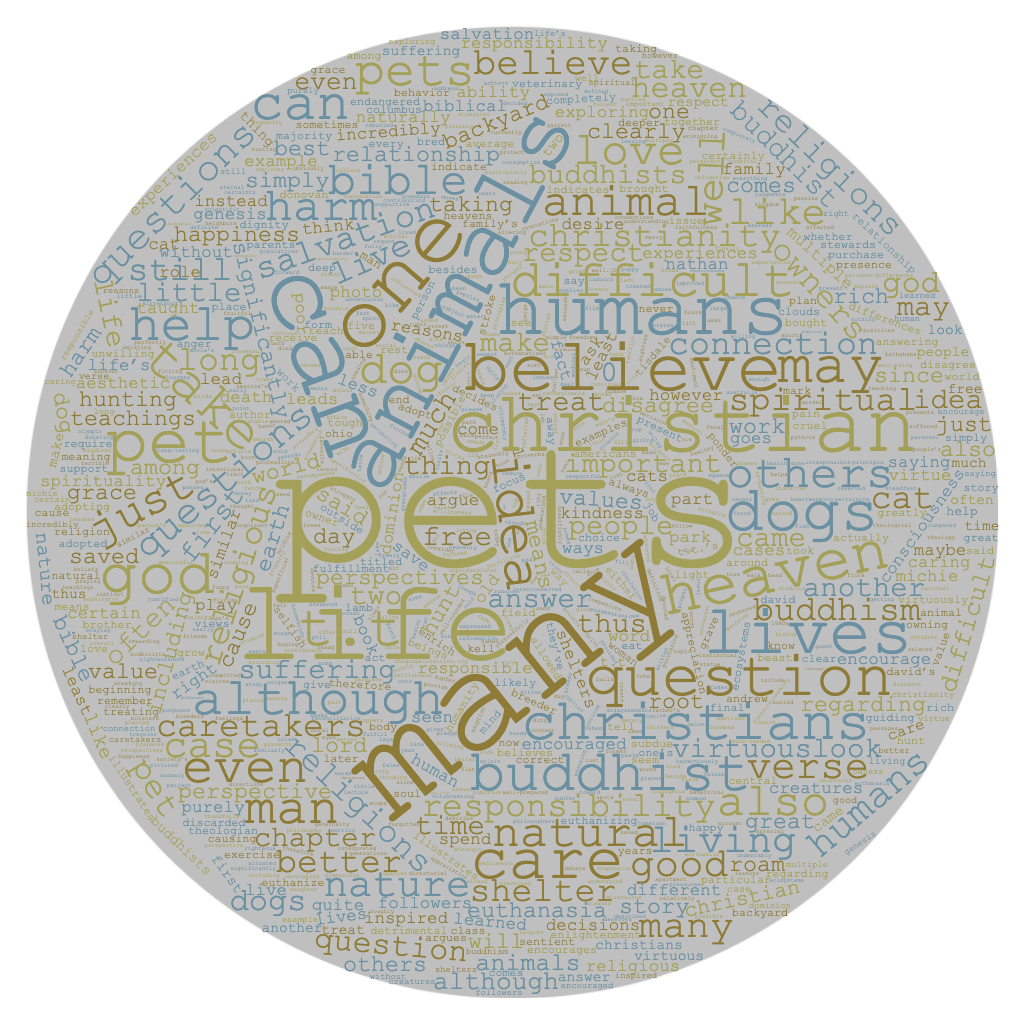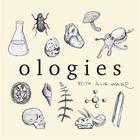Search
165 items
-
Justice for Each Generation
Justice for Each Generation started with the landmark case, Juliana v. U.S. Twenty-one youth had filed a lawsuit against the United States government for its role in causing climate change and violating their right to life, liberty, and property, while also failing to protect essential public resources. They are calling for sermons from youth and adults of all faiths as a collective statement that sends a signal to the rest of society. -
Faith Based Farms
Faith Based Farms is a webinar about families and communities from across the United States demonstrating their faith through farming. Colm Flynn, a freelance reporter, conducted his research by traveling from New Jersey, to Wisconsin, and to Michigan. During his journey, he enjoyed conversations with a range of diverse individuals and faith-based groups. -
The Villa Farm
The Villa Maria, located in Villa Maria, Pennsylvania, describes itself on their website as the following: "Operating on 759 acres, the farm of Villa Maria Community Center is an integral part of the heritage of the Sisters of the Humility of Mary. The farm serves as a symbol of the struggle and sacrifice of a small group of women who settled on the Lawrence County land in 1864 and succeeded in establishing a viable, productive farm when others before them had failed. Land management at the farm is based on spirituality, sustainability, simplicity and the preservation of all local life systems." The greenhouse is open seasonally along with a produce market that sells the food grown. -
Columbus bonds with Ghana sister city through agriculture project
Roman Catholic Cardinal Peter Turkson spoke at Mershon Auditorium at The Ohio State University in 2015. The proceeds from his talk with OSU President Michael Drake were used as matching funds in a grant from the Initiative for Food and Agricultural Transformation (InFACT) discovery theme program. The proceeds funded an agricultural exchange between Accra, Ghana, and Columbus, Ohio. -
We Are What We Eat
The 214th General Assembly (2002) Presbyterian Church (U.S.A.) approved the following report titled We Are What We Eat. This report focuses on how people can influence the agriculture revolution with regard to sustainability, stewardship compassion, and community. The final section provides suggestions for activities and studies that congregations can engage in with regard to food production/consumption. -
Going Vegan for Lent can Orient us towards Christ's calling
Elyse Durham writes that it is becoming increasingly common for people to give up meat for lent, and makes note that many of the farming practices we use today are unnecessarily cruel. In addition, the consumer culture in America tempts Christians to live lives of greed instead of virtue. Karen Swallow brings up the idea of "reducetarianism," simply considering the amount of meat you consume and its implications for the environment. Fasts and veganism are suggestions for Christians who want to move away from a life of over-consumption. -
Profile: Rev. Dr. Heber M Brown
Rev. Dr. Heber M. Brown is a Baptist pastor in Baltimore, Maryland. Brown is committed to social development and has been instrumental in the creation of several programs in the Baltimore area. These include Orita’s Cross Freedom School, of which he is the founding director, and the Black Church Food Security Network. The latter works to support the accessibility of food by linking historically African American congregations with urban growers and Black farmers. Brown has received a number of awards recognizing his work, including the Ella Baker Freedom Fighter Award and the Food Justice Award from the Baltimore City Office of Civil Rights. -
Tomorrow (Sept. 1) is World Day of Prayer for the Care of Creation: Pope Francis calls on believers and unbelievers to care for our common home
Thursday, September 1, 2016, has been declared a shared World Day of Prayer for the Care of Creation by Catholic and Orthodox Christian communities. This year, Pope Francis issued a video invitation to prayer in which he calls believers and unbelievers alike to work together to care for our common home. In August of 2015, the pope issued a letter
(https://w2.vatican.va/content/francesco/en/letters/2015/documents/papa-francesco_20150806_lettera-giornata-cura-creato.html) declaring Sept. 1 as an annual day of prayer for the care of creation, joining the Orthodox Church, which has been doing so since 1989. Citizens are urged to pray and join a local prayer service, or if no local service is offered, representatives from Catholic, Protestant, Orthodox and Episcopalian churches will offer an online prayer service (https://seasonofcreation.org/2016/08/25/sept-1-online-prayer-service/) at 8am US EDT. -
Profile: Melanie Harris
Dr. Melanie L. Harris is Associate Professor of Religion at Texas Christian University in Fort Worth, TX . There, she teaches and conducts research in the areas of Religious Social Ethics, African American Religion and Environmental Justice. She is a GreenFaith Fellow and co-director of Earth Honoring Faith with Ghost Ranch Education and Conference Center. Dr. Harris is currently a member of the Board of Directors of KERATV/Radio in Dallas and facilitates contemplative retreats as a licensed Spiritual Director. She is the author of Gifts of Virtue: Alice Walker and Womanist Ethics (Palgrave), as well as coeditor of the volume Faith, Feminism, and Scholarship: The Next Generation (Palgrave) and editor of Ecowomanism: Earth Honoring Faiths (Brill).
Along with Dr. Jennifer Harvey, Dr. Harris conducts workshops about racial justice, womanist ethics and environmental justice. She has presented to audiences in the AME, United Church of Christ, and Baptist church traditions. -
Environmental Statement – Reformed Church in America
In 1982, the Christian Action Commission of the Reformed Church in America (RCA) released a document titled “Care for the Earth: Theology and Practice.” This was given to General Synod, who then passed several resolutions outlining the Reformed Church in America’s stance on environmental issues. The Action Institute wrote the article below that discusses the resolutions that were passed. -
Laudato Si' and the U.S. Catholic Church Recordings
"The 2023 Laudato Si’ and the U.S. Catholic Church (June 14-July 27, 2023) national conference, is part of a biennial conference series co-sponsored by Creighton University and Catholic Climate Covenant to equip and inspire Catholics to more deeply integrate Laudato Si’ and its creation care teachings into the U.S. Church. The purpose of this year's conference is to encourage a greater understanding of the Laudato Si’ Action Platform’s seven goals – Response to the Cry of the Poor, Ecological Economics, Adoption of Sustainable Lifestyle, Ecological Education, Ecological Spirituality, Community Resilience and Empowerment, and Response to the Cry of the Earth – and encourage Catholic individuals and groups to enroll in the Platform, providing them with a clearer path for accomplishing each of the goals through speaker presentations." -
All Creation Gives God Praise: An Earth Day Webinar
"Every year, Catholic Climate Covenant produces a one-hour educational program. This year [2019] we are focusing on the issue of protecting biodiversity to complement the Earth Day Network's 'Protect Our Species' campaign. In the webinar we explore why the Earth day Network chose the theme of 'Protecting Our Species' and all the wonderful resources and toolkits that they have available for your use. We also delve into the Covenant's Earth Day program and how you can facilitate a program in your parish, school, or religious community." -
Religious Groups Combatting Rising Sea Levels in Louisiana
Donald and Theresa Dardar have made it their mission to save the the susceptible coasts of Louisiana from rising sea levels due to climate change. Joining forces with the local Presbyterian church, Donald and Theresa have preserved sacred mounds, refilled oil field canals, and have built elevated greenhouses. Numerous faith groups in Louisiana have prioritized saving the environment as impoverished people experience heightened effects of climate change. Preserving the community around these faith groups drives individuals to maintain the unique and celebrated environment of Louisiana. -
The Case for Animal Spirituality - Part 1: Conceptual Challenges, Methodological Considerations, and the Question of Animal Consciousness
This article, written by Paul Cunningham, explores the case for nonhuman animal spirituality. Spirituality goes beyond language, reflective consciousness, or conceptual thought. Animal spirituality and participation in religious phenomena are growing areas of research at the intersection of animal studies and religious studies, this article is a small but emerging discussion of this subfield. -
United Church of Christ Environmental Justice Ministries
"From the birth of the environmental justice movement in the 1980s to the local ministries of churches throughout the country today, the United Church of Christ has been making a profound difference in caring for God’s creation. Learn more about our history, the Creation Justice Church program, Earth Day resources, the Pollinator newsletter, Creation Justice Webinars, and the work of the UCC Council for Climate Justice." -
International Indigenous Youth Council
The International Indigenous Youth Council is a youth-led organization of 9 chapters across Turtle Island. They seek to protect Indigenous land and culture through spiritually-guided community organizing and nonviolent direct action. IIYC was founded after the Standing Rock Indigenous Uprising of 2016, and is credited with successfully defending protecting the Cannonball and Missouri Rivers from the Dakota Access Pipeline construction. Today, they spearhead actions against policy, pipeline construction, and climate finance contributing to the climate crisis directly effecting their communities. -
The Essential Presence of Faith-Based Organizations in Sustainable Community Development
This chapter from the student-written book “Emerging Perspectives on Religion and Environmental Values in America” explores the presence of religious organizations providing service to local communities. It discusses the broad range of faith-based organizations and their many projects, and how engaging with these organizations and programs can improve connections to one's environment and spirituality. Below is the first paragraph of the chapter to introduce the discussion.
"The presence of faith-based organizations as social, human, and cultural capital within every community, regardless of demographic dimension, politics, race, and income demonstrate the resilience of religion as an asset essential to the cultivation of sustainable community development. Throughout history, religious groups have served as providers of essential services for the less fortunate, and advocates for social justice and equity in both rural and urban communities. Despite trying circumstances, this resolute effort over time and their relative success in providing support to those in need, has afforded faith based-organizations credibility, and in some cases their role is indispensable." -
The Place of Pets in Our Lives: Some Christian and Buddhist Perspectives
This chapter from the student-written book “Emerging Perspectives on Religion and Environmental Values in America” explores the impact of animals and pets on our environmental values. The author discusses their own experiences with pets as well as religious texts and perspectives as they relate to animals. Below is the first paragraph of the chapter to introduce the discussion.
"If you ask a person to tell you about their favorite pet they’ve had, no matter how long it has been since it lived, their faces will most likely light up with joy as they tell you a humorous or heartwarming story about 'the best cat' or 'the best dog in the world!' Love and appreciation for our pets seems to be a relatively universal trait that, for many of us, is also interconnected with our religious or moral values and feelings toward nature." -
Ologies: Critical Ecology (SOCIAL SYSTEMS + ENVIRONMENT) with Suzanne Pierre
"How do societal structures affect the planet? Why should we get to know our neighbors? What’s the ecological price we pay for … stuff? Yep, there’s an -ology for that. We chat with the founder of Critical Ecology: biogeochemist, National Geographic Explorer, researcher and plant nerd, Dr. Suzanne Pierre. Dr. Pierre’s Critical Ecology Lab is involved with research on the biomes of former plantations, air pollution, agricultural runoff, and even asking questions about wildfire science and the prison system. She explains how the Big Picture can always zoom out and be a little bigger. Before you know it, you’ll see Critical Ecology everywhere you go." -
Sustainability Photo Contest
This RESTORExchange photo contest is being brought back from the pre-COVID era, and with an added collaboration with the Sustainability Institute. It's based around the question "What does sustainability look like?" This can include sustainability in environmental justice, technology, energy, lifestyle and wellbeing, society and culture, economy and politics, and any other context where you see sustainability in action. We want to see your perspectives and show all the different places that sustainability is practiced! Winning photos will be decided by a panel of judges (yet to be determined), and the top four photos will win a prize! First place will receive $400, second place will receive $300, third place will receive $200, and an honorable mention will receive $100. Submissions will be accepted through March 15, 2023. -
Marianist Environmental Education Center
"The Marianist Environmental Education Center (MEEC) is an environmental education community in the Catholic tradition. In Mary's hope-filled spirit, we preserve and act in communion with the land and educate other communities in sustainability through ecology-based simple living, social justice and spirituality." -
Laudate Deum
"Eight years have passed since I published the Encyclical Letter Laudato Si’, when I wanted to share with all of you, my brothers and sisters of our suffering planet, my heartfelt concerns about the care of our common home. Yet, with the passage of time, I have realized that our responses have not been adequate, while the world in which we live is collapsing and may be nearing the breaking point. In addition to this possibility, it is indubitable that the impact of climate change will increasingly prejudice the lives and families of many persons. We will feel its effects in the areas of healthcare, sources of employment, access to resources, housing, forced migrations, etc.
This is a global social issue and one intimately related to the dignity of human life. The Bishops of the United States have expressed very well this social meaning of our concern about climate change, which goes beyond a merely ecological approach, because 'our care for one another and our care for the earth are intimately bound together. Climate change is one of the principal challenges facing society and the global community. The effects of climate change are borne by the most vulnerable people, whether at home or around the world'. In a few words, the Bishops assembled for the Synod for Amazonia said the same thing: 'Attacks on nature have consequences for people’s lives'. And to express bluntly that this is no longer a secondary or ideological question, but a drama that harms us all, the African bishops stated that climate change makes manifest 'a tragic and striking example of structural sin'.
The reflection and information that we can gather from these past eight years allow us to clarify and complete what we were able to state some time ago. For this reason, and because the situation is now even more pressing, I have wished to share these pages with you." -
The Pope, the Environmental Crisis, and Frontline Leaders | The Letter: Laudato Si Film
"In 2015, Pope Francis wrote Laudato Si’ (The Letter); an encyclical letter about the environmental crisis to every single person in the world. A few years later, four voices that have gone unheard in global conversations have been invited to an unprecedented dialogue with the Pope. Hailing from Senegal, the Amazon, India, and Hawai’i, they bring perspective and solutions from the poor, the indigenous, the youth, and wildlife into a conversation with Pope Francis himself. This documentary follows their journey to Rome and the extraordinary experiences that took place there, and is packed with powerfully moving personal stories alongside the latest information about the planetary crisis and the toll it’s taking on nature and people.
Because, in the words of the Laudato Si’ Movement chair Lorna Gold, 'once you know, you CANNOT look away.' #LaudatoSiFilm
Learn more about the protagonists and how you can take action at
https://TheLetterFilm.org" -
EPN Breakfast: Yellowstone to Yukon: Enhancing Rocky Mountain animal migration through remote sensing and international collaboration
"Caribou, grizzly bears, bison, and many more megafauna and countless bird species rely upon a major migration corridor of western North America spanning the Yellowstone-to-Yukon (Y2Y) region. Y2Y extends more than 3,400 kilometers from the Greater Yellowstone Ecosystem in the western United States to the Arctic Circle in the Yukon Territory of Canada. These species are impacted by roads and other human infrastructure developed throughout the corridor.
Enter the Room to Roam: Y2Y Wildlife Movements (Room2Roam) project. Room2Roam is funded through the NASA Ecological Forecasting Program and is accelerating data analysis and coordination to improve wildlife management efforts across borders. With coordination from Ohio State’s Dr. Gil Bohrer and representatives of seven agencies and conservation groups from First Nations, Canadian provinces and territories, and American states, launched this project from Whitehorse, Yukon Territory, in 2022...
With support from Ohio State's Translational Data Analytics Institute (TDAI), join this EPN event to learn more about this incredible research and partnership endeavor, and its implications for land and resource managers in Ohio and beyond."
The event will take place on 2/13/2024 from 7:15 a.m. to noon at Nationwide and Ohio Farm Bureau 4H Center.
The cost is $25 for non-students, $5 for students, and free for virtual participants. -
MLK Day 2024
"ServeOhio Funds 19 Statewide Service Projects Taking Place in celebration of MLK Day
These grants support more than 1,300 volunteers engaging in local community service projects across fifteen Ohio cities
ServeOhio, the Governor-appointed commission on service and volunteerism, announces grant awards to support 19 local Martin Luther King Jr. Day of Service projects throughout January totaling more than $25,000. Much like Dr. King’s legacy, these grants will help nonprofits across the state improve their communities through service and volunteer activities. The grants will fund service projects in fifteen Ohio cities led by more than 1,300 volunteers.
Each project commits to bringing volunteers together to create or improve community assets or infrastructure and supports local community engagement and impact. Additionally, every project includes an education component based on Dr. King’s message of peace, unity, and service to create long-term, sustainable change.
ServeOhio awards these grants with support from the American Electric Power Foundation. Each grant totals between $250 - $1,500."




